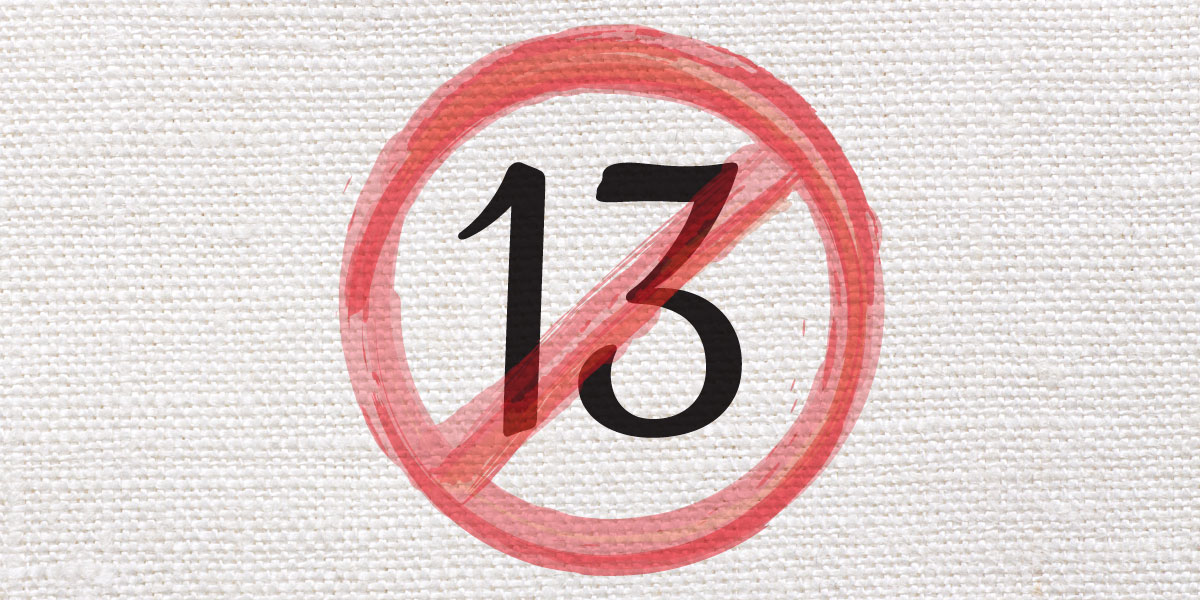Paraskevidekatriophobia affects at least 10% of the U.S. population, causing people to miss work and even avoid travel and special events that results in economic losses of over $800 million annually. What is it that causes such a disruption in the lives of one in ten of Americans? Friday the 13th.
For many years, western cultures have had a fear of the number 13. Throughout history the number 12 has been thought to be the perfect number. Our calendar has 12 months and our days are split into two 12-hour segments. Twelve is quite literally the number on which we run our lives. So how did 13 become so unlucky?

It all started with a clerical error. One of the first translators of the Code of Hammurabi, one of the world’s oldest legal documents, forgot to include a line of text, which sparked an early myth around the fear of the number 13. After that two significant events happened that perpetuated the superstition. Judas Iscariot, who betrayed Jesus Christ, was the 13th guest to arrive at The Last Supper, and in Norse lore the mischievous god Loki brought evil and turmoil into the world when he showed up as the 13th guest at a dinner party and upset the balance of 12 gods. If 12 is the perfect number, then it seems there can be too much of a good thing.
It’s crazy to think that three seemingly separate world events throughout history can cause so much superstition and affect people’s buying habits. Even more shocking that this stems from a clerical error made centuries ago. What is it that drives superstition? Let’s examine in this week’s weekend word.
su·per·sti·tion
ˌso͞opərˈstiSH(ə)n/
noun
1. excessively credulous belief in and reverence for supernatural beings.
2. a widely held, but unjustified belief in supernatural causation leading to certain consequences of an action or event, or a practice based on such a belief.
Superstition is nothing more than an unjustified belief. Like the fear of the monster underneath our beds we felt as a kid. While the power of superstition can be very strong, we must try our best to keep it at bay and not let it control our lives. Superstition does not control our lives – we do.
A great example of taking control of life is our children at St Elizabeth. They are committed to their education. I am committed to providing a hand up in support. If you would like to join me today, $13 is a lucky amount. Support a child.
Have a SUPER day,
Cristen
P.S. If you want to read more about the “unlucky” number 13 visit: http://www.history.com/news/ask-history/whats-so-unlucky-about-the-number-13
